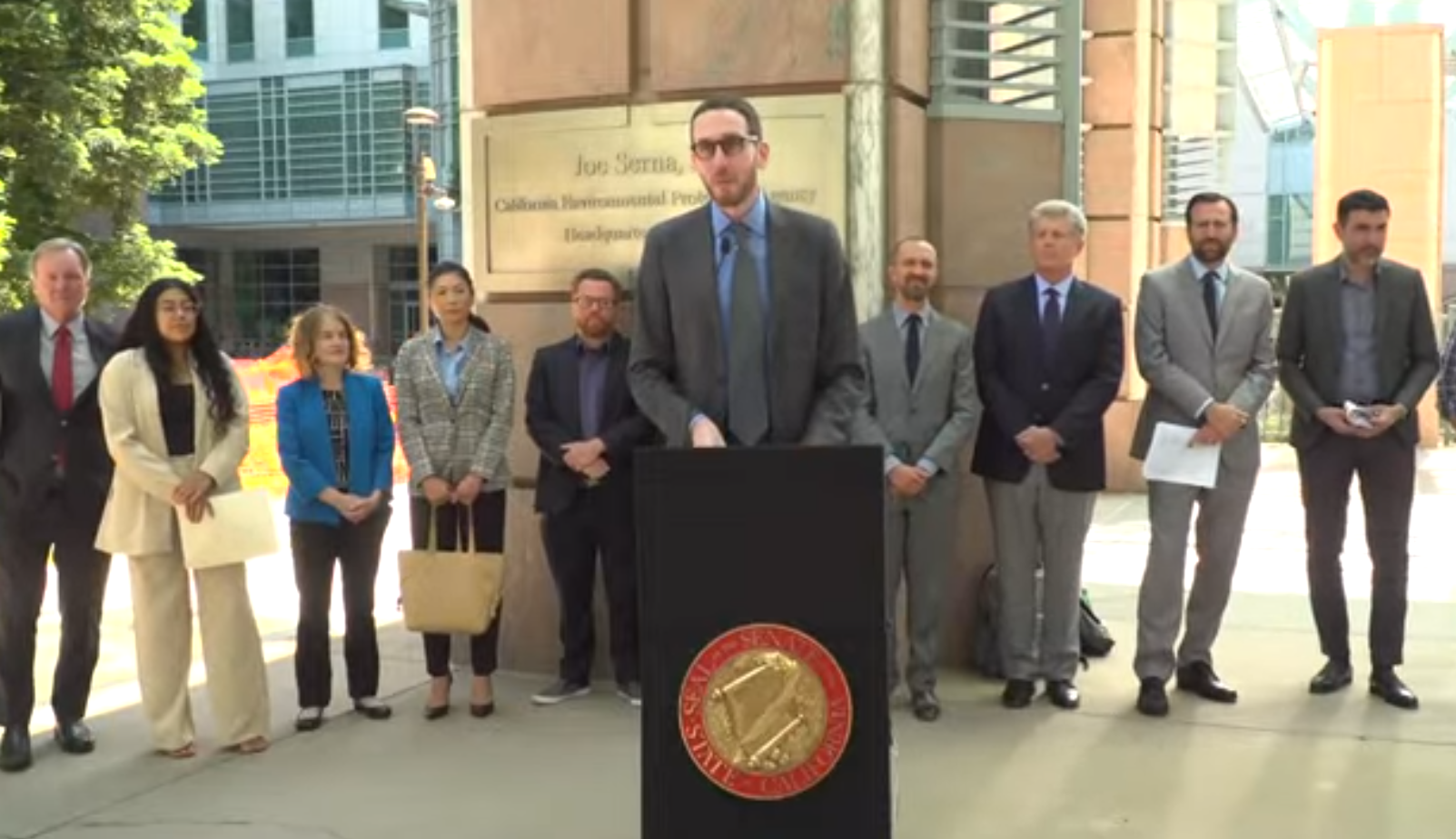Senator Scott Wiener and his Bay Area colleagues today announced the introduction of S.B. 532, a bill that would raise tolls on seven Bay Area state-owned bridges by $1.50 to support the region's transit systems.
S.B. 532 would need a 2/3 vote by the legislature to pass. It is conceived as a "temporary emergency" measure, raising tolls for five years to help bridge a gap between federal relief, state money, and a potential future regional ballot measure. The bill requires at least ninety percent of the toll revenues to be distributed based on maintaining transit service as well as for safety, reliability, cleanliness, and security improvements. Ten percent of the revenues would be set aside for reforms adopted by the Metropolitan Transportation Commission (MTC) in its Transit Transformation Action plan.
Over the next five years, the toll increase would bring in an estimated $900 million for transit operations. That amount would be combined with anticipated state money ($400 million from the legislature's proposed transit funding of $2.5 billion statewide would go to the Bay Area) and another $300 million identified by the MTC. The total, about $1.6 billion, would not be enough to make up what the MTC estimates is an operating shortfall of about $2.5 billion, but it would give "breathing room" for the region to discuss a regional ballot measure on the 2026 ballot.
"Transit is not optional," said Senator Wiener at the press conference announcing the bill. "We have to ask ourselves: will the Bay Area be a better place or a worse place if we see massive transit cuts?"
Bay Area transit agencies have said that, without relief funding, they would have to make deep cuts in service, including reducing frequencies and eliminating weekend and evening services. "It would be harder for everyone to get around," including drivers, said Wiener. "Even if you never take public transportation, if services collapse, it would be harder to drive. Bridges and freeways would be congested."
"For the future of mobility, for the future workforce, and for the climate, we have to shore up our transit systems," he said. "The legislature has stepped up to fund $2.5 billion; now it's up to us to fill in the rest. We have to engage in self-help."
Transit agencies have been steadily increasing service as ridership returns. SF Muni estimates it has recovered about two thirds of its pre-pandemic ridership and BART about forty percent; both agencies having increased those numbers by about a third in the last year. But because they rely heavily on fares, that recovery is too slow to stave off service cuts. The agencies have also responded to complaints about safety and cleanliness. For example, BART has required its police to ride the trains, added unarmed ambassadors, and is cleaning the train interiors more often. In addition, all the agencies are working together on pilot programs to coordinate their services better.
You can't reform a defunct transit system. If it falls apart, then having oversight is irrelevant.
Senator Scott Wiener
Assemblymember Alex Lee, a co-author of S.B. 532, acknowledged that "people say that transit agencies have to tighten their belts. "But I'd like to point out that throughout the world, very few transit agencies exist without a subsidy of some kind."
While there are calls for increased oversight and accountability - one reporter asked about vague "broken promises" to taxpayers on using public moneys - Senator Wiener pointed out that, while important, that is a separate issue. "To suggest that this bill should not pass - which would cause drastic cuts - because transit needs oversight is wrong. The question we need to ask is: Do we want our systems to run better and be more reliable? Absolutely. Is it in the interests of folks in the region not to be able to rely on transit? How does it benefit any of the Bay Area counties to make it hard or impossible for people to get to work or to school or to senior centers?"
"We need to make sure these systems are reforming themselves," he added. "More people will be going to the office, but we know that the dust [from the pandemic] hasn't settled, and that transit systems will need to adapt" to new needs and travel patterns. "But you can't reform a defunct transit system," he said. "If it falls apart, then having oversight is irrelevant."
Cue the outcry that drivers pay too much and/or shouldn't have to support transit with their toll dollars. That's a conversation to be welcomed as an opportunity to discuss how much we accommodate and subsidize car travel.






